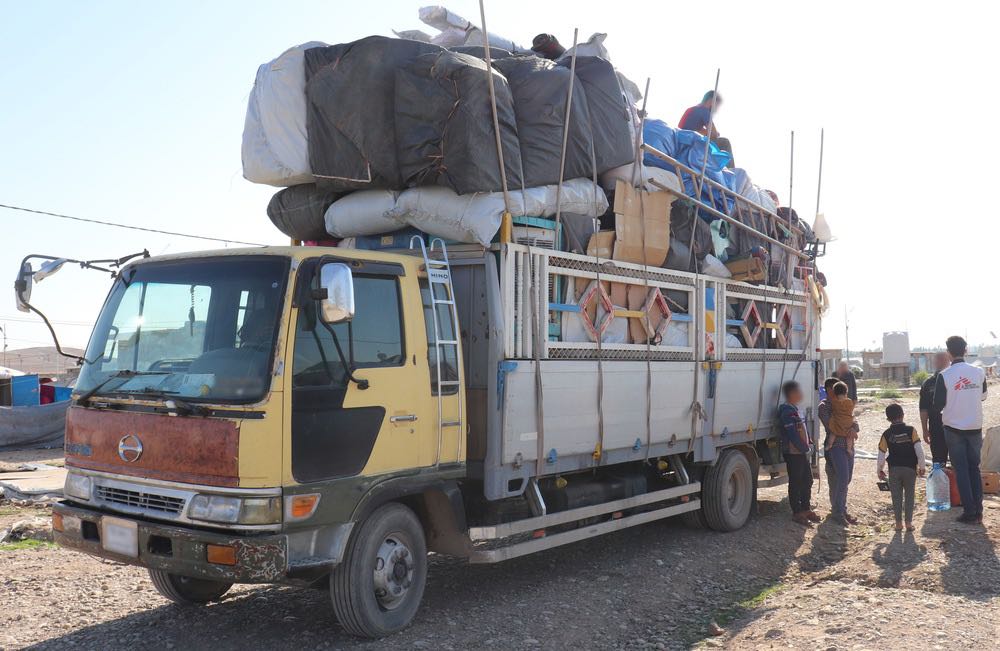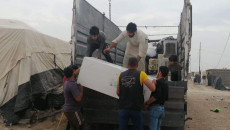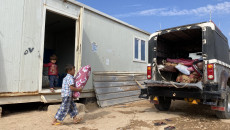Doctors Without Borders (MSF) warns that closing Laylan camp in Kirkuk may lead to a humanitarian crisis for IDPs who are being compelled to return to their areas of origin.
The warning was made in a statement on 24 November as the process of returning IDPs from Laylan 1 camp started.
The Iraqi government has launched a campaign in recent months to close all IDP camps before the end of the year, by facilitating the "voluntary" return of the IDPs and granting each family an amount of 1.5 million dinars (about $1,260). But many of the IDPs say they are being forced to return.
Even if they want to close the camp, they should not send us to our home areas now
“Even if they want to close the camp, they should not send us to our home areas now,” a woman among the IDPs has told MFS. “They need to provide safety for us. Because of many tribal issues and insecurity, many people cannot go back to their villages.”
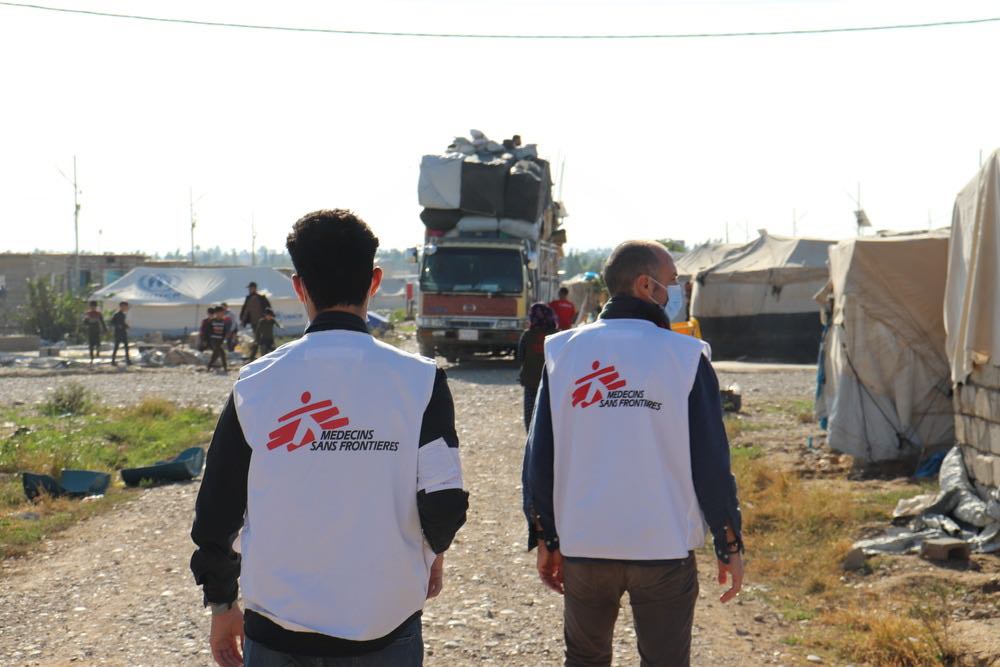
According to the MSF, some of the IDPs may be subjected to violence in their home regions if they are suspected of having ties to ISIS.
“When some of my neighbours went back, they were verbally assaulted and had to hide from local people – they were afraid they would be hurt,” the IDP woman had told MSF.
The camps in Kirkuk (Laylan 1, Laylan 2, Laylan 3, Nazrawa, Yahyawa, Daquq) have been providing shelter to thousands of IDPs since 2014. Only Laylan 1 and Yahyawa remained open this year. Yahyawa was also closed this October.
More than 7,000 IDPs, mostly women and children, live in Laylan 1 camp.
MSF is treating 300 patients with non-communicable diseases (NCDs) in the camp
“Our house has been destroyed. We have young children and we don’t know how we’ll manage if we are sent back. The weather is getting colder and colder each day. We have no salary to rent a house to keep safe and warm,” another woman has told MSF.
Most of the IDPs in that camp rely on MSF for healthcare.
“MSF is treating 300 patients with non-communicable diseases (NCDs) in the camp; they require uninterrupted lifelong treatment and care,” says Gul Badshah, MSF head of mission in Iraq. “With this rapid closure, there is no time for MSF to provide patients with medication to cover a three-month period till they manage to access another health facility and to prepare the medical files they need to enrol in another NCD programme in their area of return without interrupting their treatment.”
The Coronavirus pandemic is another reason MSF staff raised alarm. “Our concern is that patients may have to move out of the camp in the middle of the COVID-19 pandemic,” says Badshah. “There are eight confirmed COVID-19 cases in the camp’s isolation area. It is not clear how the patients would be transferred and how quickly they would get access to medical care.”
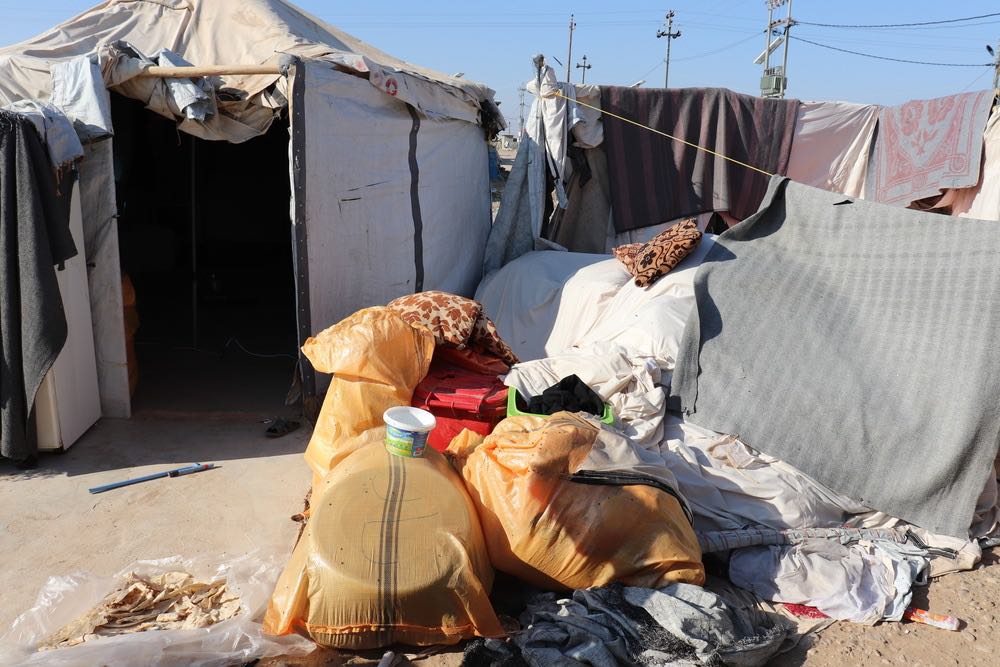
“MSF urges the Iraqi authorities to reconsider their decision to imminently close Laylan camp and to ensure that future returns are made in a more transparent, voluntary, safe and dignified manner,” the statement from MSF reads.
The MSF has been working in Iraq since 1991. With more than 1,500 staff in its projects countrywide, MSF provides free, high quality healthcare for all people regardless of race, religion, gender or political affiliation.
The Iraqi Ministry of Immigration and Displacement has said in its latest statement that within one month, 15 camps have been closed down and on average 100 families have been returned per day.
Ivan Jabro, the minister of immigration and displacement, has said in a statement that they are working on closing all the camps “by the end of the year,” and that after six years, time has come to end displacement.
During the ISIS war between 2014 and 2017, about six million people were displaced and one million of them have not returned to their home regions yet due to lack of basic services and the destruction caused by the war.

